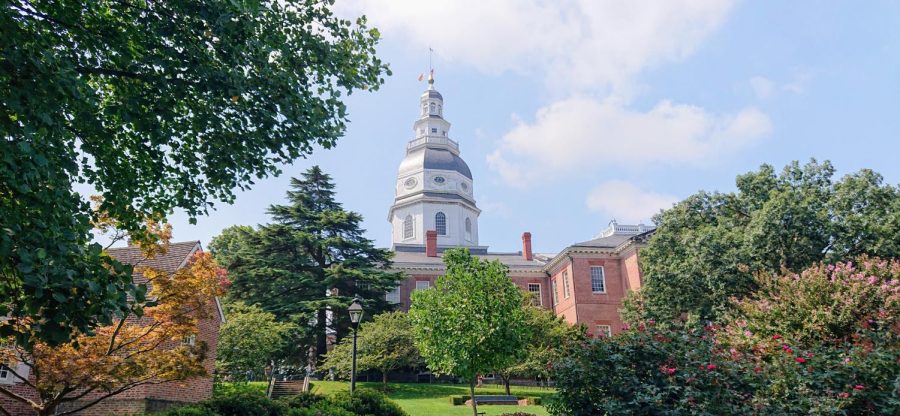Judge, Delegate talk recent Md. legislation
A Maryland chief judge and a state delegate talked about recent legislation including cannabis and abortion policy.
February 8, 2023
A District Court judge and a Maryland delegate told an audience of approximately 40 students and faculty on Wednesday that legalizing recreational cannabis is among the most important laws the state Legislature passed in 2022.
“Hundreds of thousands of Marylanders over time have been charged with possession of usually small amounts of marijuana,” Delegate Luke Clippinger said in a Legal Studies Review hosted by AACC’s Legal Studies Institute. “We have sought to, to kind of move beyond that.”
The panelists, including Clippinger and District Court Judge John Morrisey, also discussed juvenile justice reform and post-Roe vs. Wade abortion access.
Starting in July, Marylanders age 21 and older may legally possess up to 1.5 ounces of marijuana and grow up to two cannabis plants at home.
Still, the speakers pointed out, smoking weed in public and driving while high will continue to be illegal.
Clippinger said the debate on cannabis regulations is far from over.
“There have been a lot of concerns about how … it’s going to be consumed, whether it’s being smoked, where can it be smoked?” Clippinger asked. “How is it marketed? How is it sold? How do we avoid people under 21 getting it? And then the other issue is, you know, if it’s coming in the form of a gummy or in some other form, how can we ensure that that’s not something that is attractive to children?”
And, Clippinger added, “There’s a broad or at least broad-ish consensus within the Legislature that certainly on driving offenses, people want to treat cannabis in the same way that we treat alcohol.”
In the courts, said Morrisey, who serves on multiple judiciary committees, work will begin on reviewing and expunging the records of those convicted of using or possessing small quantities of cannabis.
“We haven’t quite got our hands around how many people had prior convictions for cannabis,” Morrisey.
The pair also updated the audience on the state’s effort to make legal abortions easier to obtain.
Clippinger explained the Abortion Care Access Act, which the Legislature passed last year to allow midwives, nurse practitioners and other healthcare professionals besides doctors to perform abortions.
Lawmakers overrode a veto of the bill by former Gov. Larry Hogan, who said the move lowered the safety standard for the procedure.
“Considering … the [U.S. Supreme Court] decision to overturn Roe [vs. Wade], I believe that what people wanted to ensure here in the state of Maryland is that women would have that ability to exercise the freedom to seek reproductive health care,” Clippinger said. “The legislation seeks to act as an insurance policy that those services are available, and that they’re available to women across the state and regardless of their income.”
The Legal Studies Institute offered the event because “it’s very important as individuals that are going out into the legal profession to pay attention to what’s going on in the General Assembly,” Erin Gable, director of AACC’s Legal Studies Institute, said during the program. “Being up on the most current law, whether it’s case law or legislation is something that’s crucial to your clients. So bringing this to you, we think is a real service.”












